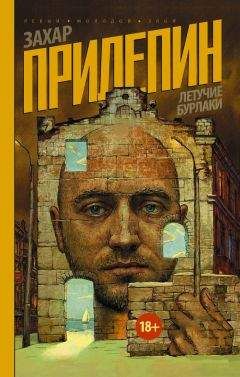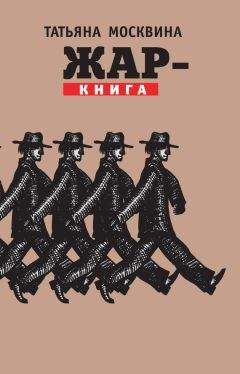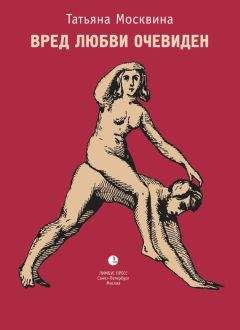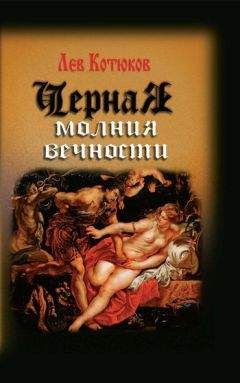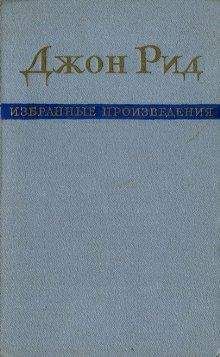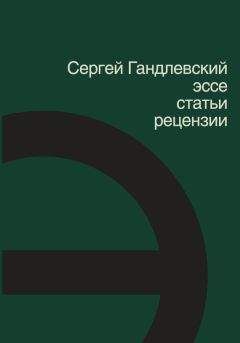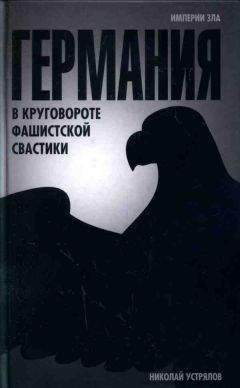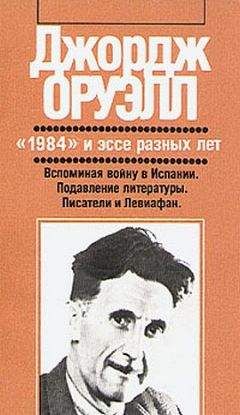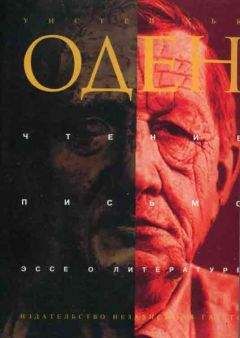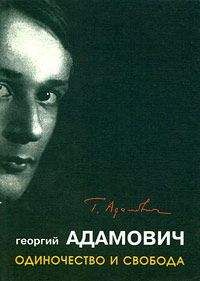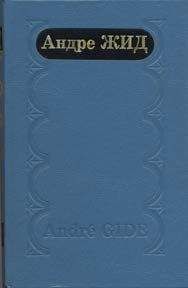Уистан Оден - Стихи и эссе
Скачивание начинается... Если скачивание не началось автоматически, пожалуйста нажмите на эту ссылку.
Жалоба
Напишите нам, и мы в срочном порядке примем меры.
Описание книги "Стихи и эссе"
Описание и краткое содержание "Стихи и эссе" читать бесплатно онлайн.
УИСТЕН ХЬЮ ОДЕН (WYSTAN HUGH AUDEN; 1907–1973) — англо-американский поэт, драматург, публицист, критик. С 1939 года жил в США. Лауреат Пулицеровской и других литературных премий. Автор многих поэтических сборников, среди которых «Танец смерти» («The Dance of Death», 1933), «Гляди, незнакомец!» («Look, Stranger!», 1936), «Испания» («Spain», 1937), «Век тревоги» («The Age of Anxiety», 1947), «Щит Ахилла» («The Shield of Achilles», 1955), «Избранные стихи» («Collected Shorter Poems», 1968).
1969
"About suffering they were never wrong,"
About suffering they were never wrong,
The Old Masters; how well, they understood
Its human position; how it takes place
While someone else is eating or opening a window or just
walking dully along;
How, when the aged are reverently, passionately waiting
For the miraculous birth, there always must be
Children who did not specially want it to happen, skating
On a pond at the edge of the wood:
They never forgot
That even the dreadful martyrdom must run its course
Anyhow in a corner, some untidy spot
Where the dogs go on with their doggy life and the
torturer's horse
Scratches its innocent behind on a tree.
In Breughel's Icarus, for instance: how
everything turns away
Quite leisurely from the disaster; the ploughman
may
Have heard the splash, the forsaken cry,
But for him it was not an important failure; the
sun shone
As it had to on the white legs disappearing into
the green
Water; and the expensive delicate ship that must
have seen
Something amazing, a boy falling out of the sky,
had somewhere to get to and sailed calmly on.
ARCHAEOLOGY
The archaeologist's spade
delves into dwellings
vacancied long ago,
unearthing evidence
of life-ways no one
would dream of leading now,
concerning which he has not much
to say that he can prove:
the lucky man!
Knowledge may have its purposes,
but guessing is always
more fun than knowing.
We do know that Man,
from fear or affection,
has always graved His dead.
What disastered a city,
volcanic effusion,
fluvial outrage,
or a human horde,
agog for slaves and glory,
is visually patent,
and we're pretty sure that,
as soon as palaces were built,
their rulers
though gluttoned on sex
and blanded by flattery,
must often have yawned.
But do grain-pits signify
a year of famine?
Where a coin-series
peters out, should we infer
some major catastrophe?
Maybe. Maybe.
From murals and statues
we get a glimpse of what
the Old Ones bowed down to,
but cannot conceit
in what situations they blushed
or shrugged their shoulders.
Poets have learned us their myths,
but just how did They take them?
That's a stumper.
When Norsemen heard thunder,
did they seriously believe
Thor was hammering?
No, I'd say: I'd swear
that men have always lounged in myths
as Tall Stories,
that their real earnest
has been to grant excuses
for ritual actions.
Only in rites
can we renounce our oddities
and be truly entired.
Not that all rites
should be equally fonded:
some are abominable.
There's nothing the Crucified
would like less
than butchery to appease Him.
ROMAN WALL BLUES
Over the heather the wet wind blows,
I've lice in my tunic and a cold in my nose.
The rain comes pattering out of the sky,
I'm a Wall soldier, I don't know why.
The mist creeps over the hard grey stone,
My girl's in Tungria; I sleep alone.
Aulus goes hanging around her place,
I don't like his manners, I don't like his face.
Piso's a Christian, he worships a fish;
There'd be no kissing if he had his wish.
She gave me a ring but I diced it away;
I want my girl and I want my pay.
When I'm a veteran with only one eye
I shall do nothing but look at the sky.
October 1937
EPITAPH ON A TYRANT
Perfection, of a kind, was what he was after,
And the poetry he invented was easy to understand;
He knew human folly like the back of his hand,
And was greatly interested in armies and fleets;
When he laughed, respectable senators burst with laughter,
And when he cried the little children died in the streets.[137]
January 1939
REFUGEE BLUES
Say this city has ten million souls,
Some are living in mansions, some are living in holes:
Yet there's no place for us, my dear, yet there's no place for us.
Once we had a country and we thought it fair,
Look in the atlas and you'll find it there:
We cannot go there now, my dear, we cannot go there now.
In the village churchyard there grows an old yew,
Every spring it blossoms anew:
Old passports can't do that, my dear, old passports can't do that.
The consul banged the table and said,
"If you've got no passport you're officially dead":
But we are still alive, my dear, but we are still alive.
Went to a committee; they offered me a chair;
Asked me politely to return next year:
But where shall we go to-day, my dear, but where shall we go to-day?
Came to a public meeting; the speaker got up and said;
"If we let them in, they will steal our daily bread":
He was talking of you and me, my dear, he was talking of you and me.
Thought I heard the thunder rumbling in the sky;
It was Hitler over Europe, saying, "They must die":
O we were in his mind, my dear, O we were in his mind.
Saw a poodle in a jacket fastened with a pin,
Saw a door opened and a cat let in:
But they weren't German Jews, my dear, but they weren't German Jews.
Went down the harbour and stood upon the quay,
Saw the fish swimming as if they were free:
Only ten feet away, my dear, only ten feet away.
Walked through a wood, saw the birds in the trees;
They had no politicians and sang at their ease:
They weren't the human race, my dear, they weren't the human race.
Dreamed I saw a building with a thousand floors,
A thousand windows and a thousand doors:
Not one of them was ours, my dear, not one of them was ours.
Stood on a great plain in the falling snow;
Ten thousand soldiers marched to and fro:
Looking for you and me, my dear, looking for you and me.
March 1939
VOLTAIRE AT FERNEY
Perfectly happy now, he looked at his estate.
An exile making watches glanced up as he passed
And went on working; where a hospital was rising fast,
A joiner touched his cap; an agent came to tell
Some of the trees he'd planted were progressing well.
The white alps glittered. It was summer. He was very great.
Far off in Paris where his enemies
Whispered that he was wicked, in an upright chair
A blind old woman longed for death and letters. He would write,
"Nothing is better than life". But was it? Yes, the fight
Against the false and the unfair
Was always worth it. So was gardening. Civilize.
Cajoling, scolding, scheming, cleverest of them all,
He'd had the other children in a holy war
Against the unfamous grown-ups; and like a child, been sly
And humble, when there was occasion for
The two-faced answer or the plain protective lie,
But, patient like a peasant, waited for their fall.
And never doubted, like D'Alembert, he would win:
Only Pascal was a great enemy, the rest
Were rats already poisoned; there was much, though, to be done,
And only himself to count upon.
Dear Diderot was dull but did his best;
Rousseau, he'd always known, would blubber and give in.
Night fell and made him think of women: Lust
Was one of the great teachers; Pascal was a fool,
How Emilie had loved astronomy and bed;
Pimpette had loved him too, like scandal; he was glad.
He'd done his share of weeping for Jerusalem: As a rule,
It was the pleasure-haters who became unjust.
Yet, like a sentinel, he could not sleep. The night was full of wrong,
Earthquakes and executions: Soon he would be dead,
And still all over Europe stood the horrible nurses
Itching to boil their children. Only his verses
Perhaps could stop them: He must go on working: Overhead,
The uncomplaining stars composed their lucid song.
February 1939
IF I COULD TELL YOU
Time will say nothing but I told you so,
Time only knows the price we have to pay
If I could tell you I would let you know.
If we should weep when clowns put their show,
If we should stumble when musicians play?
Time will say nothing but I told you so.
There are no fortunes to be told, although,
Because I love you more then I can say,
If I could tell you I would let you know.
The winds must come from somewhere when they blow,
There must be reason why the leaves decay;
Time will say nothing but I told you so.
Perhaps the roses really want to grow,
The vision seriously intends to stay;
If I could tell you I would let you know.
Suppose the lions all get up and go,
And all the brooks and soldiers run away;
Will time say nothing but I told you so?
If I could tell you I would let you know.
Stop all the clocks, cut off the telephone
(Funeral Blues)
Stop all the clocks, cut off the telephone,
Prevent the dog from barking with a juicy bone,
Silence the pianos and with muffled drum
Bring out the coffin, let the mourners come.
Let aeroplanes circle moaning overhead
Scribbling on the sky the message He Is Dead,
Put crepe bows round the white necks of the public doves,
Let the traffic policemen wear black cotton gloves.
He was my North, my South, my East and West,
My working week and my Sunday rest,
My noon, my midnight, my talk, my song;
I thought that love would last for ever: I was wrong.
The stars are not wanted now: put out every one;
Pack up the moon and dismantle the sun;
Pour away the ocean and sweep up the wood.
For nothing now can ever come to any good.
1938
TRINCULO'S SONG
Mechanic, merchant, king,
Are warmed by the cold clown
Whose head is in the clouds
And never can get down.
Into a solitude
Undreamed of by their fat
Quick dreams have lifted me;
The north wind steals my hat.
On clear days I can see
Green acres far below,
And the red roof where I
Was Little Trinculo.
There lies that solid world
These hands can never reach;
My history, my love,
Is but a choice of speech.
A terror shakes my tree,
A flock of words fly out,
Whereat a laughter shakes
The busy and devout.
Wild images, come down
Out of your freezing sky,
That I, like shorter men,
May get my joke and die.
From "Under Which Lyre"
Подписывайтесь на наши страницы в социальных сетях.
Будьте в курсе последних книжных новинок, комментируйте, обсуждайте. Мы ждём Вас!
Похожие книги на "Стихи и эссе"
Книги похожие на "Стихи и эссе" читать онлайн или скачать бесплатно полные версии.
Мы рекомендуем Вам зарегистрироваться либо войти на сайт под своим именем.
Отзывы о "Уистан Оден - Стихи и эссе"
Отзывы читателей о книге "Стихи и эссе", комментарии и мнения людей о произведении.





